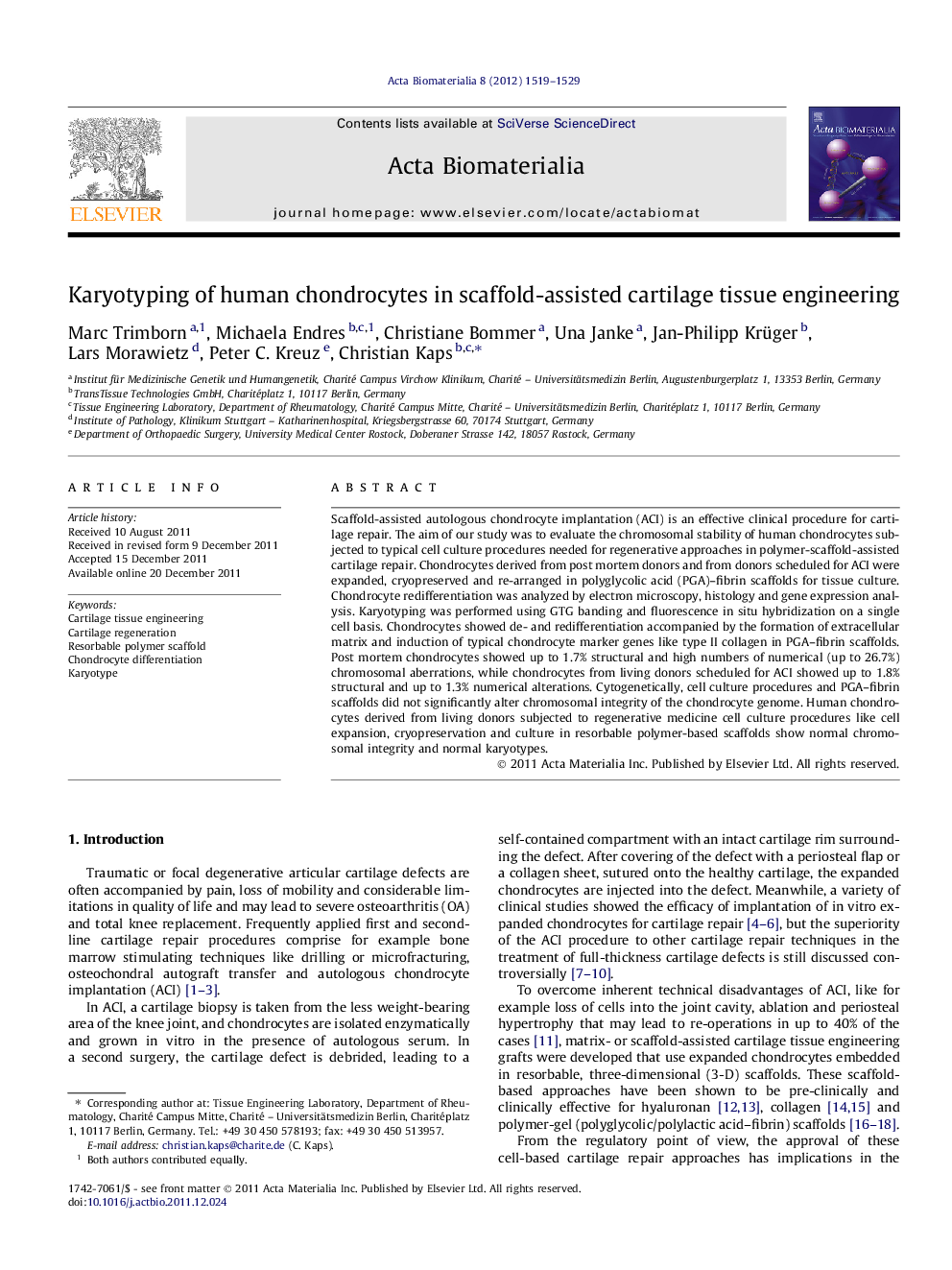| Article ID | Journal | Published Year | Pages | File Type |
|---|---|---|---|---|
| 1224 | Acta Biomaterialia | 2012 | 11 Pages |
Scaffold-assisted autologous chondrocyte implantation (ACI) is an effective clinical procedure for cartilage repair. The aim of our study was to evaluate the chromosomal stability of human chondrocytes subjected to typical cell culture procedures needed for regenerative approaches in polymer-scaffold-assisted cartilage repair. Chondrocytes derived from post mortem donors and from donors scheduled for ACI were expanded, cryopreserved and re-arranged in polyglycolic acid (PGA)–fibrin scaffolds for tissue culture. Chondrocyte redifferentiation was analyzed by electron microscopy, histology and gene expression analysis. Karyotyping was performed using GTG banding and fluorescence in situ hybridization on a single cell basis. Chondrocytes showed de- and redifferentiation accompanied by the formation of extracellular matrix and induction of typical chondrocyte marker genes like type II collagen in PGA–fibrin scaffolds. Post mortem chondrocytes showed up to 1.7% structural and high numbers of numerical (up to 26.7%) chromosomal aberrations, while chondrocytes from living donors scheduled for ACI showed up to 1.8% structural and up to 1.3% numerical alterations. Cytogenetically, cell culture procedures and PGA–fibrin scaffolds did not significantly alter chromosomal integrity of the chondrocyte genome. Human chondrocytes derived from living donors subjected to regenerative medicine cell culture procedures like cell expansion, cryopreservation and culture in resorbable polymer-based scaffolds show normal chromosomal integrity and normal karyotypes.
